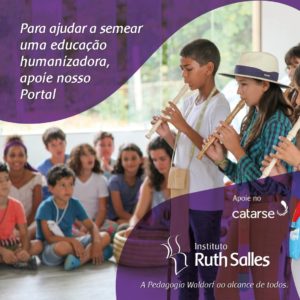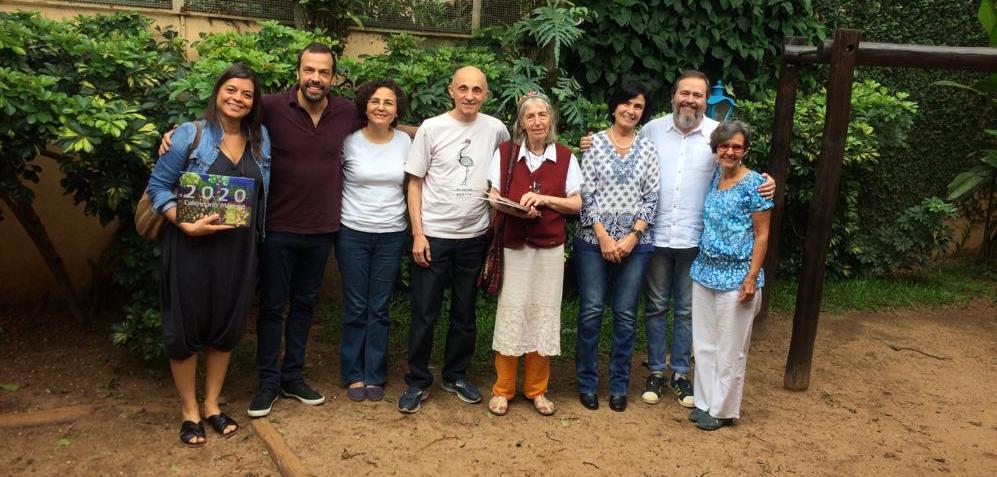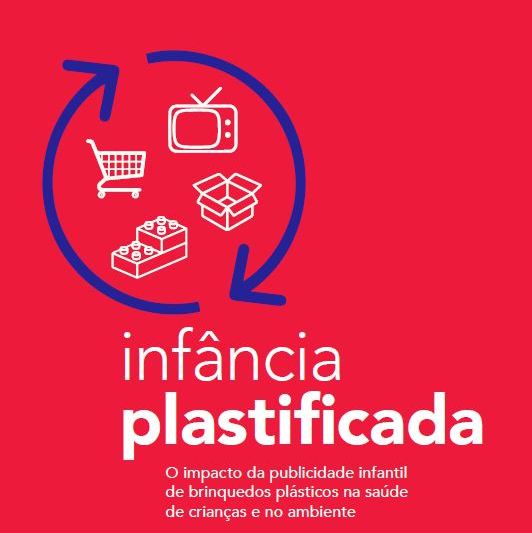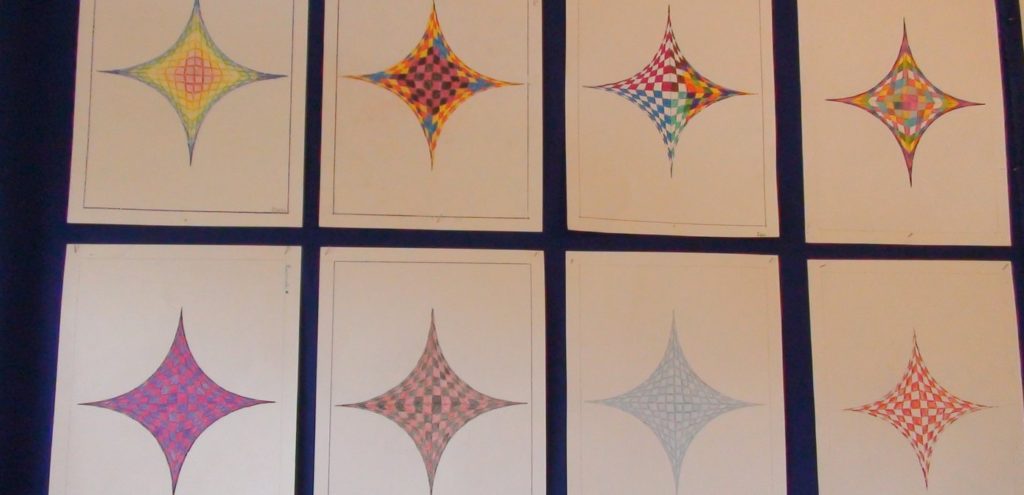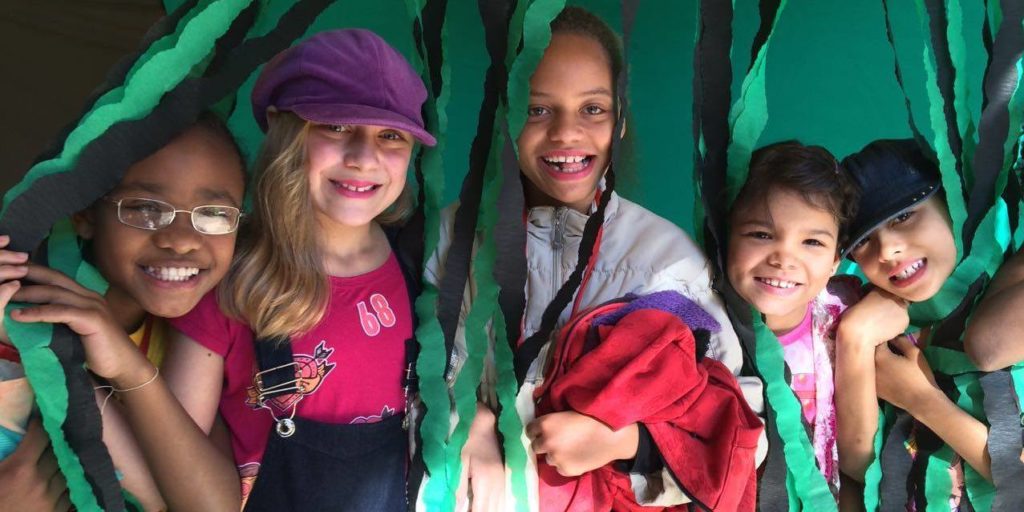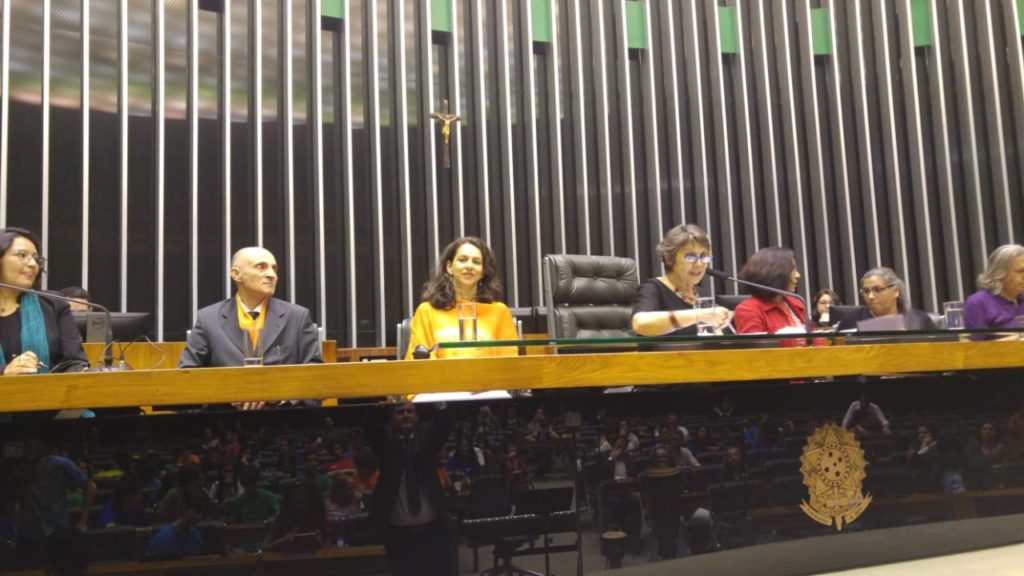by Ken Robinson
This TED Program conference has been accessed by over 70 million people, and has been translated into 64 languages. Photo: Sebastiaan ter Burg
There are three topics covered throughout the conference that are relevant to what I'm going to talk about. The first is the extraordinary evidence of human creativity in all the presentations we had and in all the people present. Its variety and multiplicity. The second is the fact that we have no idea what will happen in the future. No idea what awaits us.
I have a keen interest in education, and I think we all do. We are so interested in it in part because it is education's role to lead us into this mysterious future. If you think about it, kids entering school this year will be retiring in 2065. No one has any idea, despite all the knowledge we've seen in the last four days, what the world will look like in five years. And yet we must educate them for this world. Unpredictability, to me, is extraordinary.
The third thing is that we all agree, despite everything, on the extraordinary ability children have. Your ability to innovate. Siren last night was a wonder, wasn't it? See what she's capable of. She is exceptional, but I don't think, so to speak, that she is an exception among all children. What we see there is a person of extreme dedication who found his talent. My conviction is that all children have tremendous talent. And we waste it, relentlessly. So I want to talk about education and I want to talk about creativity. My conviction is that creativity today is as important in education as literacy, and should be treated with the same importance.
I heard an excellent story just now. I love to count it. It's from a little girl who was in a drawing class. She was six years old and she was in the back, drawing. The teacher said that this little girl hardly ever paid attention in class, and this time she did. The teacher was fascinated, went to her and asked: “What are you drawing?” And the girl replied, “I am drawing a picture of God.” And the teacher said, "But no one knows what God looks like." And the girl said, "You'll meet in a minute."
When my son was four, he was in a Christmas play. […] He didn't have any speech, but you know the part where the Magi arrive. They bear gifts, and bring gold, frankincense, and myrrh. It really happened. We were sitting there and I think they didn't follow the order because we talked to the little boy and then asked, "Everything okay?" And he said, “Of course! Why? Was wrong?" They changed the order, that's all. Finally, the three boys came in, four-year-olds with towels on their heads, and set the boxes on the floor. The first boy said, "I bring you gold." The second boy said, "I bring you myrrh." And the third kid said, "Frank sent this."
What these stories have in common is that children take risks. If they don't know, they kick. Am I right? They are not afraid of making mistakes. I'm not saying that being wrong is the same as being creative. What we do know is that if you are not prepared to make mistakes, you will never have an original idea. If you're not prepared to make mistakes. And by the time they reach adulthood, most children have lost that ability. They are terrified of being wrong. And companies are run like that, by the way. We stigmatize mistakes. And today we run education systems in such a way that making mistakes is the worst thing that can happen. The result is that we are educating people to be less creative. Picasso once said that all children are born artists. The problem is staying an artist while we grow up. I passionately believe that we don't increase our creativity, we decrease it. Or rather, we are educated to abandon it. But why? I lived in Stratford-on-Avon until five years ago. We actually moved from Stratford to Los Angeles. You can imagine what a smooth change it was. (laughs) We actually live in a town called Snitterfield, on the outskirts of Stratford, which is where Shakespeare's father was born. Did you have a snap? I had. You never thought Shakespeare had a father, did you? He thought? You never thought of Shakespeare as a child, did you? Shakespeare at seven? I never thought. I mean, he was once seven years old. And you learned English in someone's class, didn't you? How irritating would that be? (laughs) “Try harder.” (laughs) Being sent to bed with dad saying “To bed, now!” for William Shakespeare. “Put down that pencil. And stop talking like that. It's confusing everyone." (laughs) […]
One thing stands out when you come to the US and when you travel around the world: every educational system on the planet has the same hierarchy of subjects. All of them. It doesn't matter where we go. You think it would be different, but it's not. At the top are mathematics and languages, then the humanities and lastly the arts. Anywhere on the planet. And in virtually any system there is a hierarchy among the arts. Art and music are usually of greater importance in schools than drama and dance. There is no educational system on the planet that teaches children dance daily in the same way that it teaches math. Why? Why not? I think it's very important. I think math is important, but so is dancing. Children dance all the time if they are allowed to. We all dance. We all have bodies, don't we? […] Seriously, what happens is that as children grow, we start to educate them progressively from the waist up. And then we focus on the head. And slightly to one side. If you were to visit our schools, as an ET, and ask yourself, “What is public education for?” I think the mandatory conclusion would be, looking at the result, that whoever is successful, who does everything they must, who gets the stars, who are the winners, I think the conclusion would be that the objective of public education around the world is to produce university professors. Is not? They come out on top. And I used to be one, for the record. I like university professors, but we shouldn't place them at the top of human achievement. It's just a way of life, another way of life. But they are peculiar, and I say that with all affection. There is a curious thing about teachers, in my experience. Not all, but typically, they live in their heads. They live up there and slightly to one side. They came out of the body, almost literally. They see their body as a form of transport for their head. It's not like this? It's a way of getting their heads to conferences. If you want concrete evidence of out-of-body experiences, by the way, just attend a senior academics conference, and show up at the disco on the final night. And there you will see, mature men and women, squirming uncontrollably, out of rhythm. Just waiting for the event to end and they can write an article about it.
Our current educational system is based on the idea of academic ability. And there is a reason for that. The system was conceived, and in the whole world, public education systems did not exist before the 20th century. XIX. All of them were created to meet the demand of industrialization. So the hierarchy is supported by two ideas. The first is that the most useful subjects for work are at the top. So you were kindly turned away in school, as a kid, from certain things, things you liked, on the premise that you would never get a job doing that. Correct? Don't make music, you won't be a musician. Don't make art, you won't be an artist. Benign advice. Today deeply wrong. The whole world is involved in a revolution. The second is academic aptitude, which has come to dominate our view of intelligence, because universities designed the system in their own image. If you think about it, the entire public education system around the world is an extension of the university entrance process. The consequence of this is that many highly talented, bright and creative people think they are not, because what they were good at in school was not valued, or even stigmatized. I don't think we can afford to go that route. In the next 30 years, according to UNESCO, more people around the world will be educated through education than since the beginning of history. More people. And that's the combination of everything we've already talked about. Technology and its modifying effect on work, and demography. And the massive population explosion. Suddenly, degrees aren't worth anything anymore. Is not true? When I was studying, whoever had a degree had a job. If you didn't have a job, it was because you didn't want to. […] But now kids with degrees are coming home to play video games because they're asking for a master's degree for work that required a bachelor's degree, and a Ph.D. for work that required a master's degree. It is a process of academic inflation. And it's an indication that the entire educational structure is changing right in front of our noses.
We need to radically rethink our view of intelligence. We know three things about intelligence. One, it's varied. We think about the world in all the ways we experience it. We think visually, we think aurally, we think kinesthetically, we think abstractly, we think in motion. Two, intelligence is dynamic. If we're going to look at the interactions of the human brain, as we heard yesterday at several presentations, intelligence is wonderfully interactive. The brain does not divide into compartments. In fact, creativity, which I define as the process of coming up with original ideas that have value, quite often manifests itself through the interaction of how different disciplines see things. […] The third point about intelligence is that it is distinct. I'm currently writing a book called Epiphany, which is based on a series of interviews I did about how people discovered their talents. I'm fascinated by how they got where they are. I was motivated by a conversation I had with a wonderful woman that perhaps many people have never heard of. Her name is Gillian Lynne, have you heard of her? Some already. She is a choreographer and everyone knows her work. She worked on “Cats”, and “Phantom of the Opera”. She's wonderful. I was on the board of the Royal Ballet in England, as you can see. Gillian and I had lunch one day and I asked, “Gillian, how did you become a dancer?” And she replied that it was interesting, when she was at school, she was discouraged. And the school, in the 1930s, wrote to parents saying, “We think Gillian has a learning disability.” She couldn't concentrate, she was restless. I think today they would say she had ADHD. Do not you think? But it was the 1930s, and ADHD hadn't been invented yet. It was not an available disease. (laughs) People didn't know they could have that. So they sent her to a specialist. The room was all wood. She was with her mother, and they put her in a chair in the corner, and she sat on her hands for 20 minutes while a man talked to her mother about the problems Gillian had been having at school. And in the end… Because she was upsetting people, chores were always late, and so on, an eight year old. In the end, the doctor sat next to Gillian and said, "Gillian, I've heard all the things your mother said to me, and I need to talk to her alone." He said, “Wait here, we'll be right back. It won't be long.”, and they left her alone. But as they left the room, he turned on the radio that was on the table. And when they left the room, he said to his mother, "Just listen to her and watch her." And as soon as they left the room, she was on her feet, moving to the music. They watched for a few minutes and he turned to his mother and said, “Mrs. Lynne, Gillian isn't sick, she's a dancer. Take her to a dance school.” I asked, "What happened?" She replied, “She took it. I cannot describe how wonderful it was. We walked into a room full of people like me. People who couldn't stay still. People who needed to move to think. They needed to move to think. They taught ballet, tap, jazz, modern, contemporary dance. She eventually auditioned for the Royal Ballet School, became a soloist and had a fantastic career at the Royal Ballet. She eventually graduated from the Royal Ballet School, founded her own company, the Gillian Lynne Dance Company, and met Lloyd Weber. She was responsible for some of the most successful musicals in history, brought joy to millions, and is a multi-millionaire. Someone else could have prescribed medicine and told her to calm down.
I think it boils down to this: Al Gore spoke the other night about ecology, and the revolution unleashed by Rachel Carson. I believe that our only hope for the future is the adoption of a new conception of human ecology, one in which we begin to reconstitute our conception of the richness of human capacity. Our education system has explored our minds as we explore the earth: in search of a specific resource. And for the future, that doesn't work for us. We have to rethink the fundamental principles on which the education of our children is based. There is a wonderful quote by Jonas Salk, which says: “If all insects disappeared from the earth, within 50 years all life on earth would disappear. If all humans disappeared from Earth, within 50 years all life forms would flourish.” And he is right. What TED celebrates is the gift of the human imagination. We have to be careful and use this gift wisely so as to avoid some of the scenarios we talked about. And the only way to do that is to look at our creative ability for the wealth it represents and our children for the hope they represent. Our task is to educate them in their entirety, preparing them for that future. By the way, we may not see that future, but they will. And our job is to help them take advantage of it. Thank you so much.
Conference transcript filmed in February 2006. We've suppressed some ironic remarks, which are not so funny in this written version, but you can watch the full conference here link.

